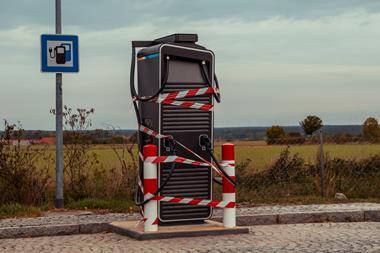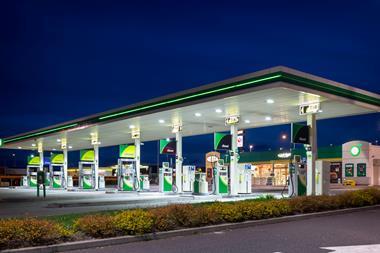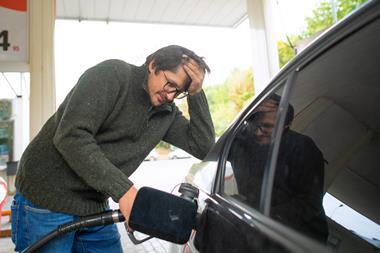A Government minister has defended supermarkets over charges they are killing off competition in order to profiteer, but has warned oil companies she expects them to do more to keep prices down.
Amber Rudd, under-secretary of state for energy and climate change, was responding to a parliamentary debate on fuel prices initiated by Labour MP for Inverclyde Iain McKenzie.
He complained that although prices were dropping, in Inverclyde they were 3ppl to 4ppl more than at forecourts 15 miles way, and suggested the reason prices were so variable within short distances was because supermarkets had killed off competition from independent filling stations.
Quoting figures supplied by the PRA he said: “In Inverclyde, 14 independent filling stations have closed in recent years, leaving only two independently operated BP filling stations and, of course, two very large supermarkets. The supermarkets moved in, sold off fuel cheaper than the small independent fuel retailers and ended the competition from those small outlets.”
He added: “The supermarkets have a much-voiced three-mile radius of competition – they tell us that they will match prices within three miles of each large supermarket. Of course, for my constituents that realistically means matching prices with themselves, because there is no one in that radius to challenge them on their pricing. Is that competitive? No, because competition was killed off many years ago.”
He also criticised the OFT inquiry into the fuel market in 2013 and called for an inquiry into fuel pricing, saying: “The Petrol Retailers Association considered the report substantially flawed owing to the fact that it did not investigate anti-competitive pricing by oil companies, or by supermarkets that subsidise fuel with margins from groceries to eliminate competition and enjoy a monopoly in the fuel market.”
He added: “Given the inadequacy of the OFT report, we need to have an open and transparent look at where profits and investments are being made. It looks as if we need to apply something similar to Labour’s proposals for the energy regulator to enforce an immediate, fair and proportionate price reduction.”
He also pointed to the high level of duty, saying: “The Petrol Retailers Association believes: ‘The main reason pump prices have not fallen in line with crude oil is due to the high proportion of Government tax levied on fuel.’”
And he concluded: “The Government should return the rate of VAT on fuel from 20% to the level it was before they came to power in 2010.”
The minister replied that UK market was “very competitive” and she was satisfied falling prices were being passed on without delay.
Responding to the charges against the supermarkets, she said: “The big four supermarkets have increased their share of the road fuel sold in the UK, from 29% in 2004 to 39% in 2012. The growth of supermarkets in this sector appears to have had a positive impact for motorists. Supermarkets are able to buy wholesale road fuel more cheaply than other retailers, and the high volumes that they sell allow them to operate on lower gross margins. I am hopeful that the entry of the supermarkets into this sector on such a large scale will have a positive effect on delivering improved prices for our consumers.”
She concluded: “Although the price drop is being passed on, we expect more from the fuel providers. We will watch oil companies carefully to ensure that they continue to pass on the falling oil price, which benefits both consumers and the wider economy. Consumers and motorists are entitled to the best value for money, and the Government are determined to ensure that they get it. We will keep this issue constantly under review, and we welcome the impact that it is having on consumers and their weekly costs.”

































No comments yet